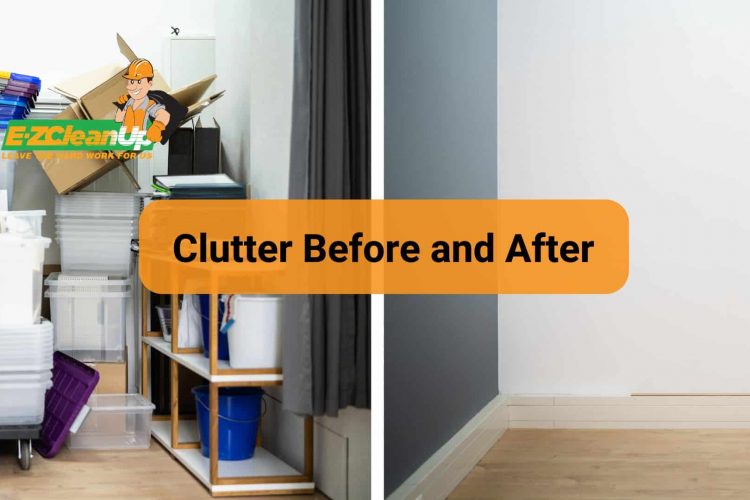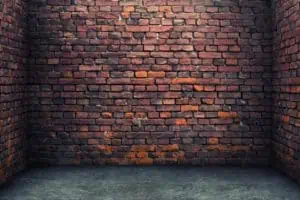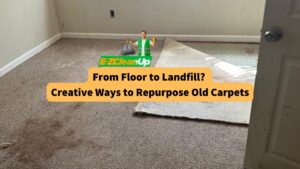Clutter can increase stress and reduce productivity, while a decluttered space enhances mood and mental well-being. Effective decluttering involves setting realistic goals, sorting items, and maintaining motivation. Organized spaces improve functionality and prevent clutter accumulation.
Wanna check out the clutter before and after transformations done by EZ CleanUp? Read the article below.
How Clutter Affects Mental Health and Daily Function
Clutter, like piles of stuff everywhere, can mess with your head. It’s not just about having a messy room—it’s about how clutter makes you feel.
Studies have shown that clutter can increase stress levels, reduce focus, and diminish overall mental well-being. The presence of clutter often leads to frustration and anxiety because it overwhelms the mind. This makes it difficult to relax or concentrate.
This constant state of disarray can also impair decision-making processes and reduce productivity as individuals spend more time managing or navigating through their cluttered spaces. Imagine trying to relax or get stuff done in a room full of chaos—it’s tough!
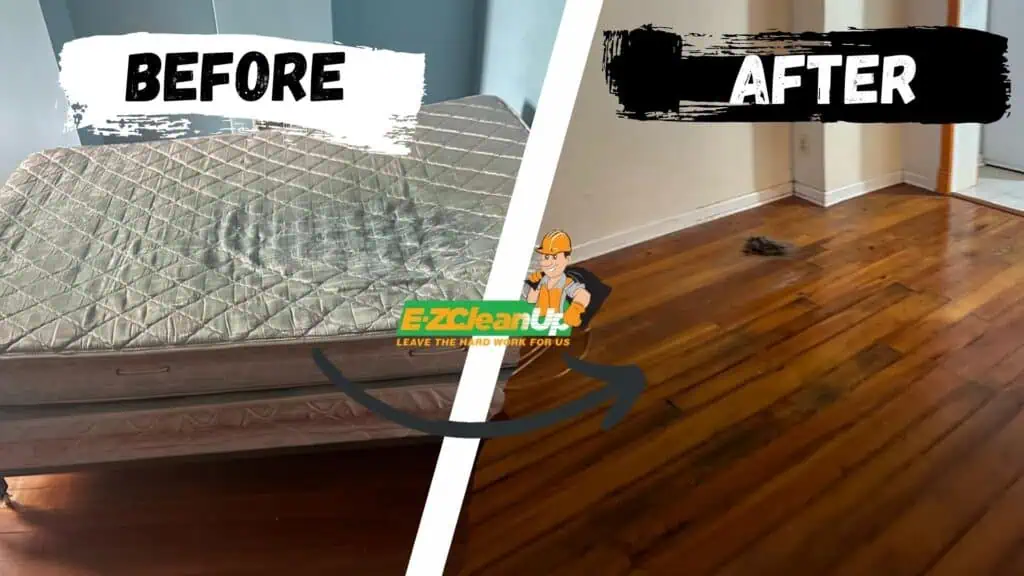
Benefits of a Decluttered Space on Stress and Well-Being
Decluttering has been proven to have numerous mental health benefits. It can enhance mood, increase self-worth, and boost productivity. A decluttered space promotes a sense of accomplishment and satisfaction. This leads to improved mental health outcomes, such as reduced anxiety and depression.
Furthermore, the act of decluttering itself can be therapeutic. It provides a sense of control and mastery over one’s environment. This control is particularly beneficial during times of stress, as it helps individuals focus and find calmness in their surroundings.
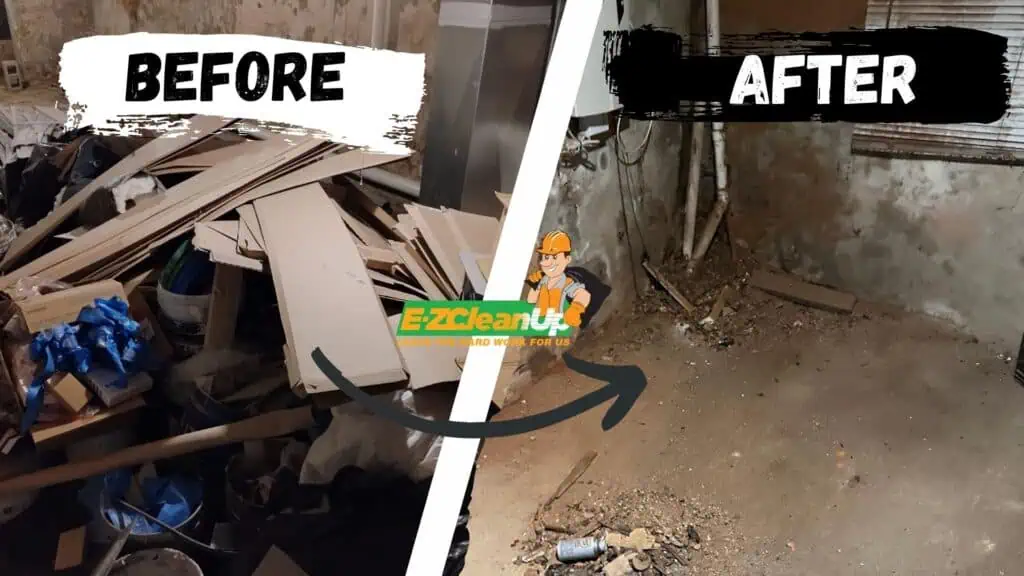
Strategies for Effective Decluttering
Decluttering doesn’t have to be overwhelming—it can actually be satisfying if you approach it right. Here’s how to make it work for you:
Setting Realistic Goals and Creating a Plan
To effectively manage decluttering, start by setting achievable goals tailored to your capacity and lifestyle. Planning involves defining what you want to accomplish in each area of your home and establishing a timeline.
Breaking your goals into smaller, manageable tasks can make the process less difficult and more structured. This approach helps maintain focus and provides a clear sense of direction. It ensures that decluttering becomes a less overwhelming experience.
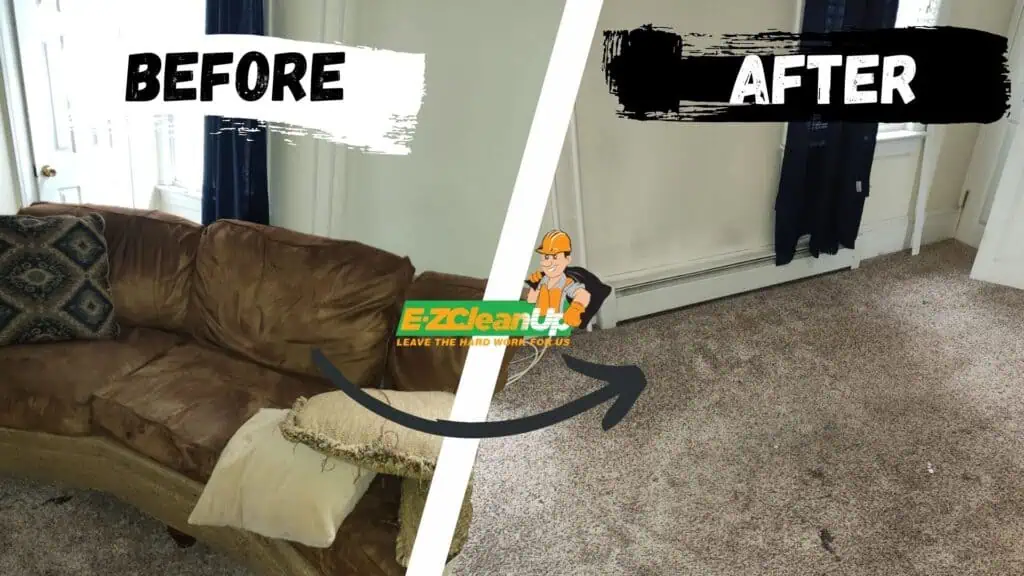
Sorting and Categorizing Items
Sorting and categorizing are crucial for effective decluttering. Begin by identifying items that add value to your life or spark joy, which simplifies decisions about what to keep. Organize your belongings into categories, which can range from daily necessities to less frequently used items.
This method clears physical space, helps in better managing what you own, and ensures each item has a purpose in your home.
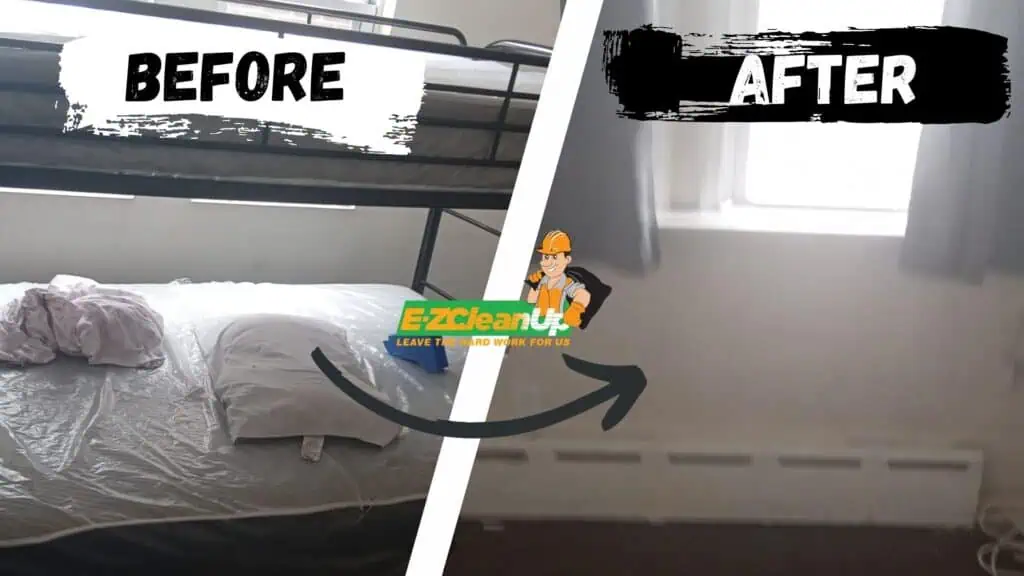
Maintaining Motivation During the Decluttering Process
Maintaining motivation can be challenging, especially during extensive decluttering projects. Setting small, daily goals can help sustain momentum, such as decluttering a drawer or a shelf each day.
Celebrate small victories to build confidence and encourage continued effort. If motivation wanes, remember the reasons why you started decluttering, whether it’s to reduce stress, improve organization, or make your home more welcoming and functional.
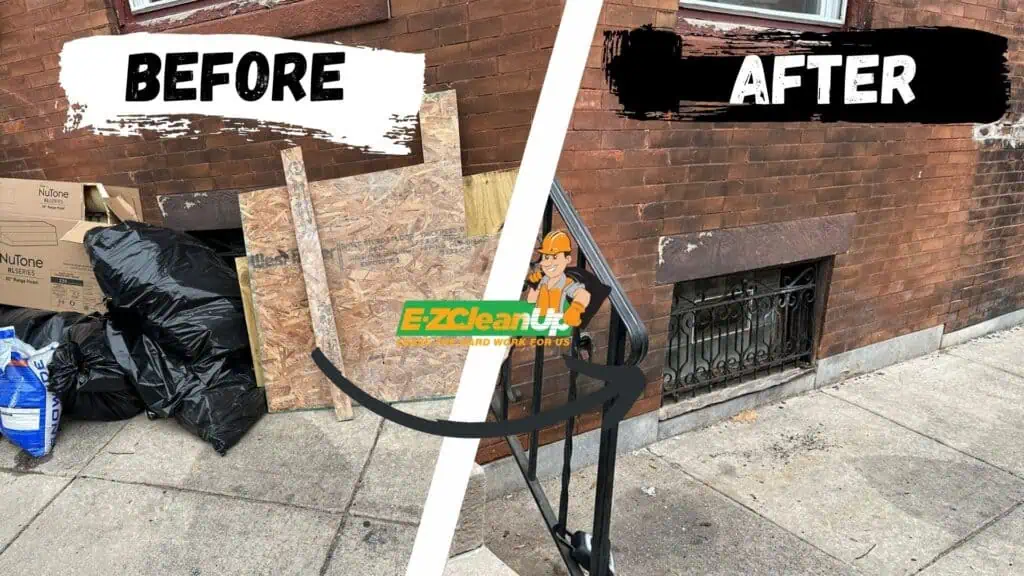
Common Areas for Decluttering
High-clutter areas such as kitchens, bedrooms, and living spaces often require targeted strategies for effective decluttering.
In the kitchen, start by evaluating small appliances and utensils. Ask yourself if each item is truly necessary or if it can be donated or discarded. Focus on clearing countertops and organizing cabinets with shelf risers and drawer dividers to maximize space. This approach reduces visual clutter and makes it easier to maintain order.
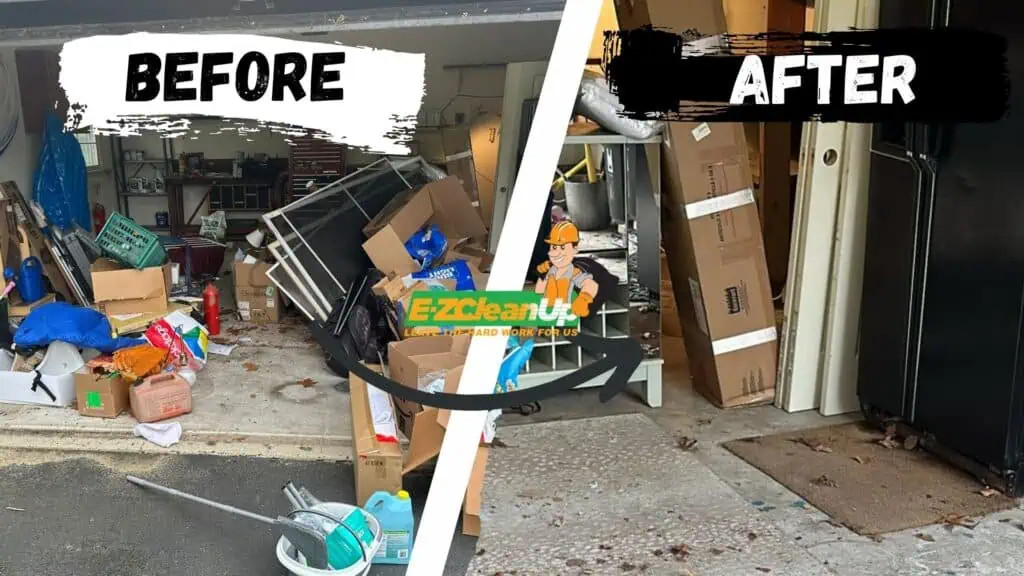
In bedrooms, begin with clothing. Items that no longer fit or haven’t been worn in over a year should be considered for donation or sale. Clear nightstands and dressers by removing non-essential items and categorizing what’s left. This improves the room’s appearance and enhances your ability to relax and sleep better.
Living spaces often accumulate a variety of items, from books to decorative objects. Start by choosing a small area to declutter, such as a single shelf or a corner of the room. Empty the space completely and decide what to keep based on functionality and joy. Use storage solutions like baskets and shelves to keep the remaining items organized and accessible.
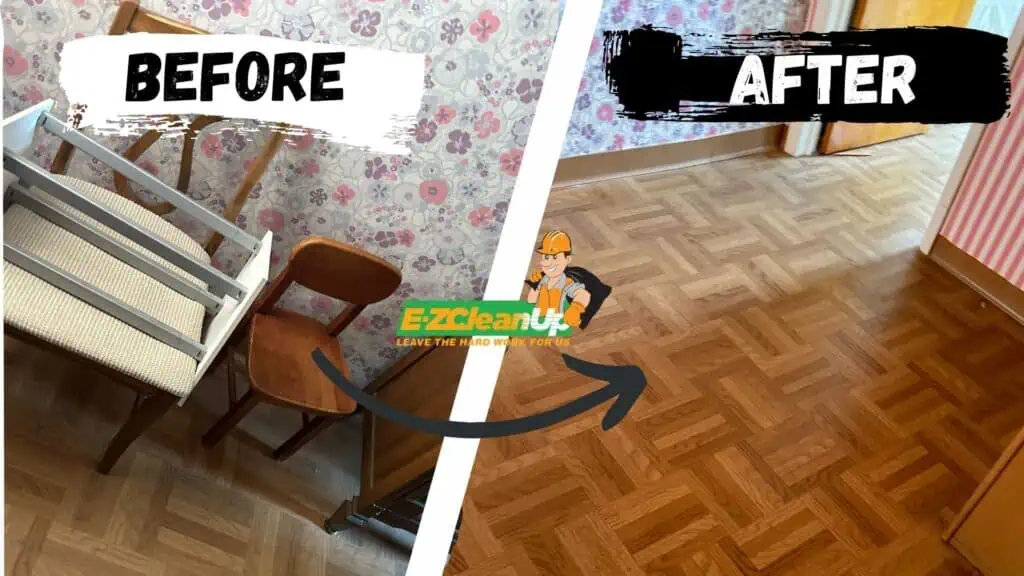
Specific Strategies for Challenging Areas Like Garages and Closets
Garages and closets can be particularly challenging due to the volume and variety of stored items. For garages, break down the task into manageable sections.
Begin with tools, sporting equipment, or seasonal decorations. Create designated zones for each category, and use storage solutions like wall-mounted racks or clear bins to keep items organized and visible.
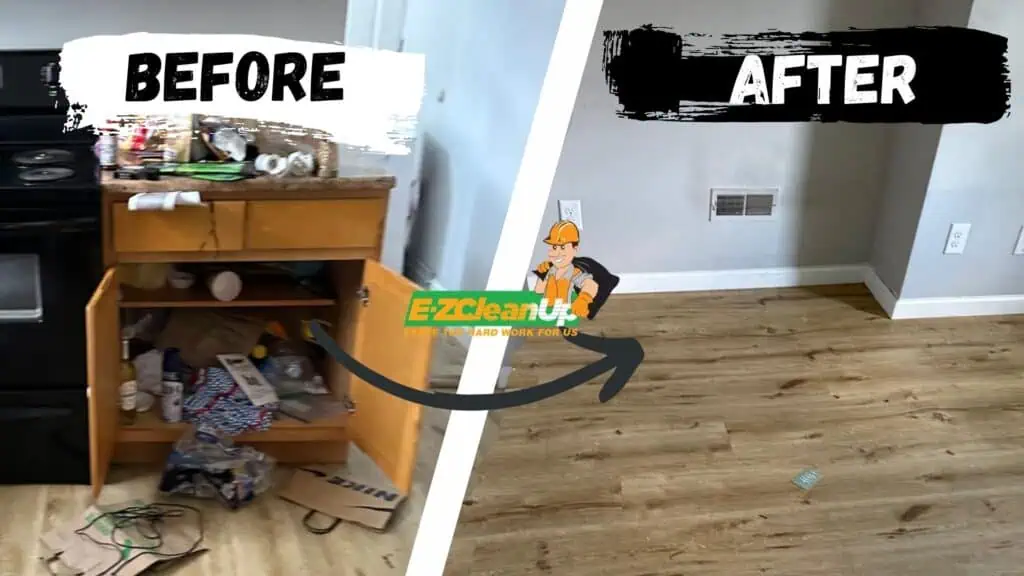
Closets, often filled with clothes, shoes, and accessories, can be overwhelming. Start by sorting items into categories and tackling one category at a time. For example, handle all shirts first, then move on to pants, and so on.
Use containers for items you decide to donate, sell, or discard. Creating specific areas for each type of clothing helps maintain an organized and visually pleasing space.
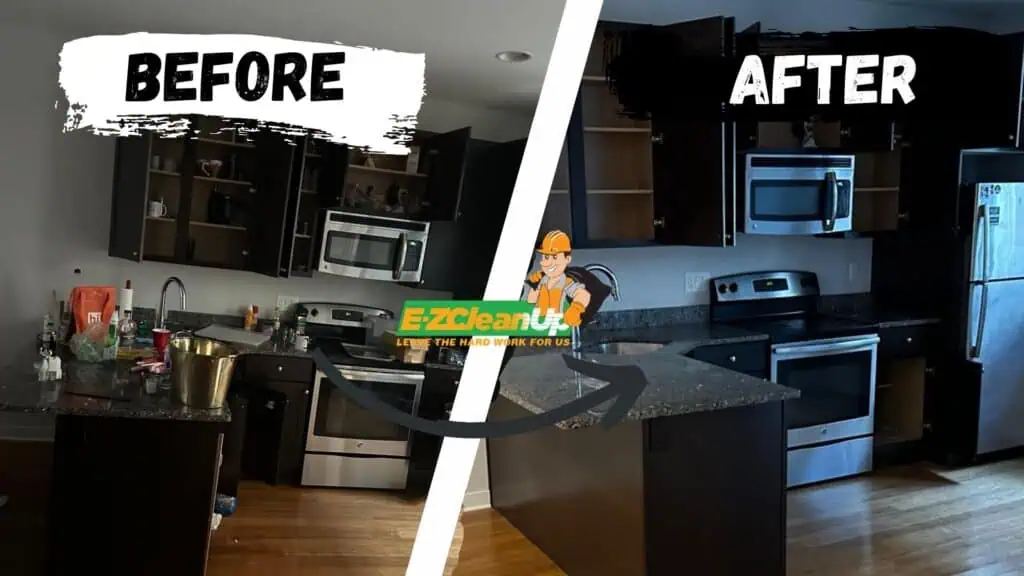
Visual Transformations and Their Emotional Impact
When you declutter your space, it’s not just about cleaning up—it’s about how it makes you feel. Clearing out clutter can actually boost your mental clarity and reduce stress. Imagine walking into a room that’s tidy and organized—it instantly brings a sense of calm and control.
Tasks like finding things or relaxing become easier when there’s less stuff in the way. Letting go of things you no longer need can be about cleaning, but it also frees you emotionally. It can feel empowering to clear out what’s holding you back.
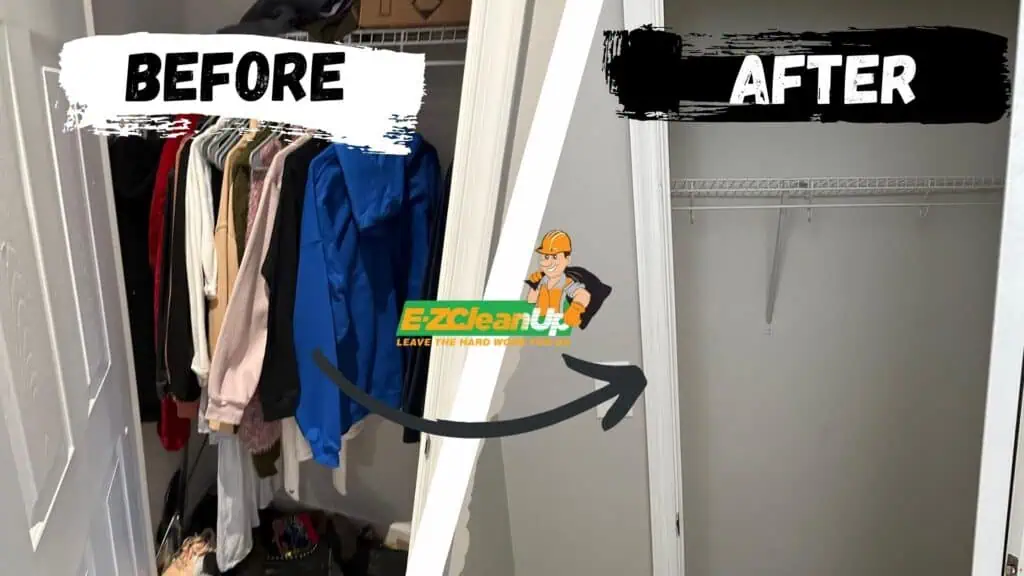
Hearing from those who have successfully decluttered can be incredibly motivating. For example, many people report feeling a renewed sense of energy and focus after clearing out their homes.
It’s common to hear stories of those who share how decluttering their bedroom improved their sleep quality as the room became a more serene and restful space. Others have found that organizing their kitchen helped them enjoy cooking again, as they could easily find the tools they needed.
These stories highlight the ripple effect of decluttering, where improvements in one area often lead to positive changes in other aspects of life.
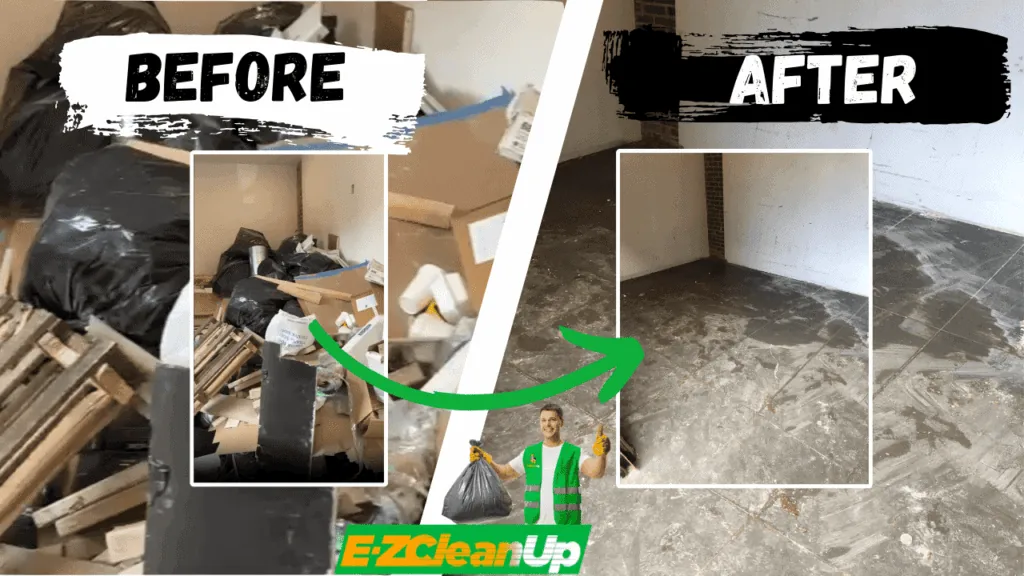
Daily Habits to Prevent Clutter Accumulation
Developing daily habits is crucial for maintaining a clutter-free home. Start your day by making the bed and putting away items that don’t belong in their current spot. This sets a positive tone and keeps your space organized from the get-go.
Another effective habit is to tackle clutter hotspots like kitchen counters or living room tables for a few minutes each day. This regular maintenance helps prevent clutter from building up and keeps your home tidy.
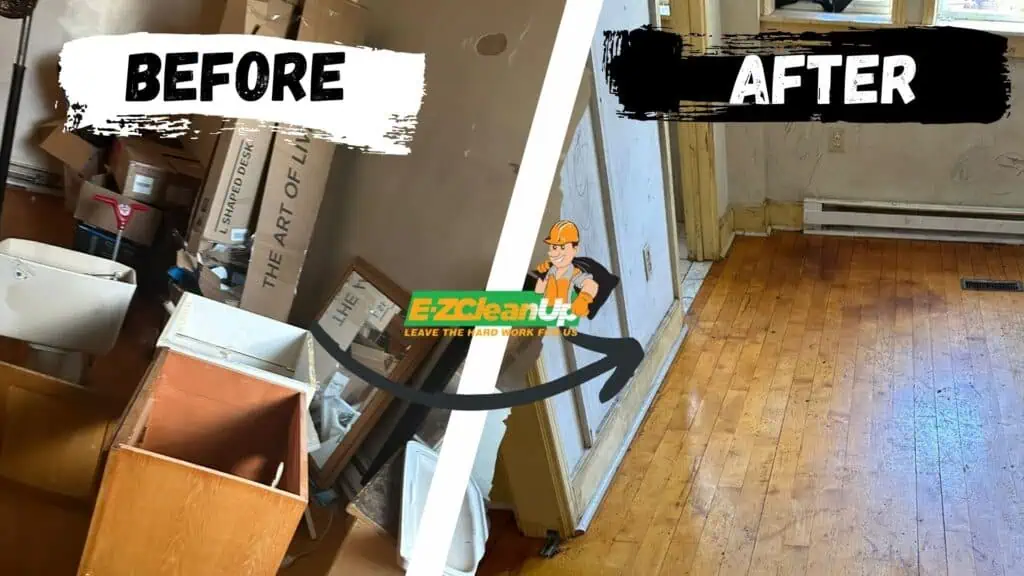
Tools and Resources for Ongoing Organization
Investing in storage solutions can make a significant difference in keeping your home organized. Use bins, baskets, and shelves to create designated spaces for various items. For instance, having a specific spot for mail and keys near the entrance can help manage daily clutter effectively.
Additionally, adopting the “one in, one out” rule can prevent unnecessary accumulation. For every new item you bring in, let go of something similar to maintain balance and avoid clutter.

Transform Your Space with EZ!
Understanding the clutter before and after dynamic reveals the clear mental and physical benefits of a decluttered environment. While the task of organizing your home might seem overwhelming, taking it step by step makes it manageable and truly transformative.
For those who find the process difficult, EZ CleanUp provides specialized services to help clear out unwanted items effectively. Reach out to us to learn more!

